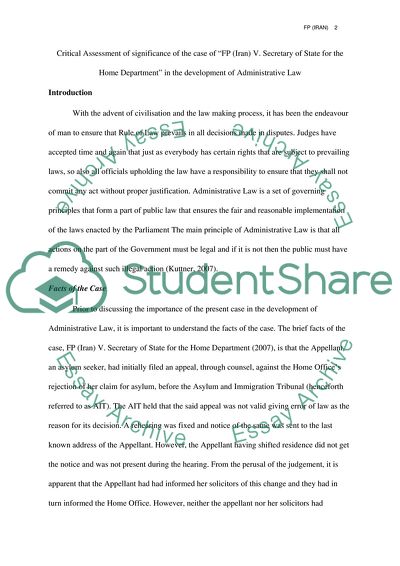Cite this document
(FP Iran V. Secretary of State for the Home Department Assignment, n.d.)
FP Iran V. Secretary of State for the Home Department Assignment. https://studentshare.org/politics/1707400-write-a-critical-assessment-of-the-significance-of-the-following-case-to-the-development-of-administrative-law-fp-iran-v-secretary-of-state-for-the-home-depa
FP Iran V. Secretary of State for the Home Department Assignment. https://studentshare.org/politics/1707400-write-a-critical-assessment-of-the-significance-of-the-following-case-to-the-development-of-administrative-law-fp-iran-v-secretary-of-state-for-the-home-depa
(FP Iran V. Secretary of State for the Home Department Assignment)
FP Iran V. Secretary of State for the Home Department Assignment. https://studentshare.org/politics/1707400-write-a-critical-assessment-of-the-significance-of-the-following-case-to-the-development-of-administrative-law-fp-iran-v-secretary-of-state-for-the-home-depa.
FP Iran V. Secretary of State for the Home Department Assignment. https://studentshare.org/politics/1707400-write-a-critical-assessment-of-the-significance-of-the-following-case-to-the-development-of-administrative-law-fp-iran-v-secretary-of-state-for-the-home-depa.
“FP Iran V. Secretary of State for the Home Department Assignment”. https://studentshare.org/politics/1707400-write-a-critical-assessment-of-the-significance-of-the-following-case-to-the-development-of-administrative-law-fp-iran-v-secretary-of-state-for-the-home-depa.


